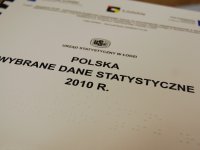The reason for the development and launch of our e-solutions was to facilitate the collection of initiatives and proposals to eliminate administrative burdens and review their implementation in one place.
Our innovation provides users with an on-line one-stop-shop solution, where they receive all information about activities in eliminating administrative burdens and preparing better legislation, and enables systematic collection, resolution and monitoring of implementation of proposals.
Innovation Tag: Communication
FÉILTE (Festival of Education in Learning and Teaching Excellence) was developed because teachers are innovating and wish to share their learning. But teaching has been an isolated profession. Research indicates that we are not good at sharing learning across the public sector.
FÉILTE is a celebration of teaching and learning by teachers for teachers, students and parents. FÉILTE shares teaching so as to connect learning.
“Kanyashree Prakalpa” (Kanya means daughter, Shree means prosperity) is a unique end-to-end ICT driven Conditional Cash Transfer programme- aims at improving lives of millions of adolescent girls having poor socioeconomic background through Educational, Social, Financial & Digital Empowerment. It has so far changed lives of 4.2 mn adolescent Girls in 4 years.
The South Saskatchewan River Basin Adaptation to Climate Variability Project (SSRB Adaptation Project) brought together those who know the region’s water systems best to look for opportunities to further enhance the resiliency of the Bow and Oldman-South Saskatchewan river basins in southern Alberta.
The Statistical Office in Łódź has created three volumes of publications of extensive statistical data (graphs, tables, etc.) in Braille version on a variety of topics, to create the opportunity of statistical education of blind children and youth.
Now the publication is published on the internet to make an opportunity for educational institutions for blind children and youth to download and duplicate it limitless.
The Poverty Stoplight (PS) seeks to activate the potential of families to eliminate multidimensional poverty beyond traditional income measures through a self-evaluation tool. PS is used by communities, businesses and governments to support families in assessing their poverty levels and implementing practical solutions, empowering the poor to be architects and protagonists in the process of eliminating poverty.
Better Reykjavik is a co-creation project of the Citizens Foundation, Reykjavik City and its citizens that connects them and improves trust and policy.
It’s a platform for crowdsourcing solutions to urban challenges and has multiple democratic functions: Agenda setting, Participatory budgeting and Policymaking.
Innovations include unique debating system, crowd-sourcing, submission of multimedia content and extensive use of AI to improve the user experience as well as content submitted.
The programme “Outreach Services: Empowering Persons with Intellectual Disabilities in Their Community” empowers persons with disabilities in order to gain independence and encourage the realization of an inclusive social environment that is friendly and caring towards the people with disabilities. It takes a family and community-based social-service model, and the inclusiveness of the innovation also avoids the separation the beneficiaries from their family and community.
Compared to…



